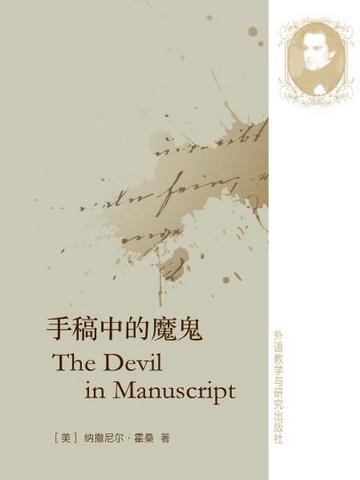手稿中真的有魔鬼吗?这魔鬼是存在于字里行间还是写书人的心中?
霍桑在《手稿中的魔鬼》这个故事中讲述了写书人殚精竭虑,创造了很多精彩绝伦的作品,然而多次投稿却未被出版社所采用,终于他心灰意冷地烧掉了手稿,期望用思想的烈焰点燃整个城市。主人公将自己作为作家的才华和蕴藏于文字中的思想比喻成魔鬼,表现了文字创作的不易。
霍桑是心理小说的开创者,擅长剖析人的“内心”。他着重探讨道德和罪恶的问题,主张通过善行和自忏来洗刷罪恶、净化心灵,从而得到拯救。然而霍桑并非全写黑暗,他在揭露社会罪恶和人的劣根性的同时,对许多善良的主人公寄予极大的同情。
霍桑描写黑暗的巨大力量,是由于受到加尔文派教义关于与生俱来的堕落与原罪思想的影响。没有一位思想深邃的人能完全摆脱这种思想所发生的各种形式的影响。——梅尔维尔
霍桑的小说“属于艺术的最高层次,一种服从于非常崇高级别的天才的艺术。”——爱伦·坡
Nathaniel Hawthorne's reputation as a writer is a very pleasing fact, because his writing is not good for anything, and this is a tribute to the man.—Ralph Waldo Emerson
The fine thing in Hawthorne is that he cared for the deeper psychology, and that, in his way, he tried to become familiar with it.—Henry James
The style of Hawthorne is purity itself. His tone is singularly effective—wild, plaintive, thoughtful, and in full accordance with his themes... We look upon him as one of the few men of indisputable genius to whom our country has as yet given birth.—Edgar Allan Poe
- 手稿中的魔鬼
- The Devil in Manuscript























 京公网安备 11010802032529号
京公网安备 11010802032529号
笔记加载中...